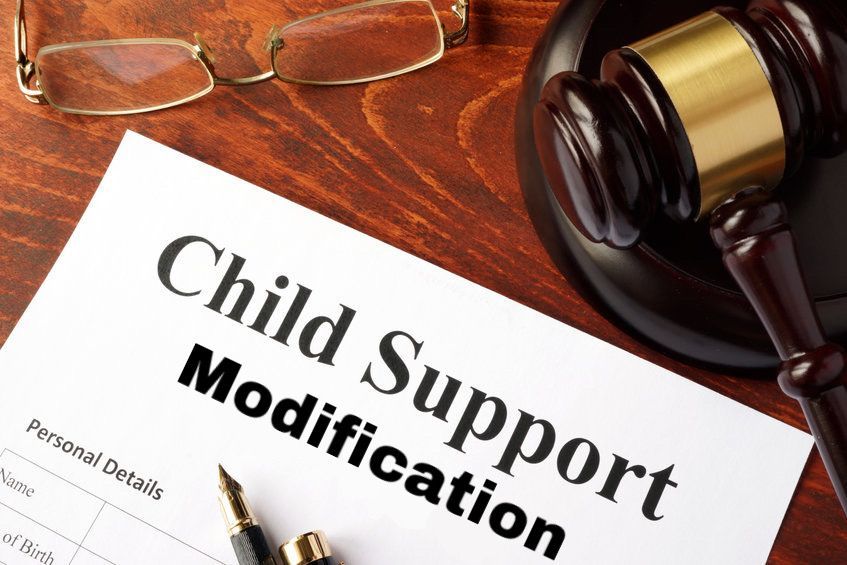Who Is Responsible for Childcare Costs?
Both parents share the cost of childcare, even after divorce or separation. The amount each parent pays depends on their income and custody arrangement. In most states, parents split these costs based on how much money they make. If one parent makes more, they usually pay more.
This guide explains who pays for daycare, how costs get divided, and what the law says about childcare expenses. You'll learn about your rights and options.
What Does Childcare Cost Parents Today
Parents are spending more on childcare than ever before. The numbers are scary for most families trying to make ends meet.
The Real Cost of Daycare in 2025
The typical parent paid at least $9,600 on childcare in 2024. That's almost $800 every month. But many parents pay way more than that.
Parents say they're spending 22% of their household income on childcare, with the average parent depleting about one third (29%) of their savings on childcare costs alone.
Here's what makes this even harder: The U.S. Department of Health and Human Services (HHS) deems 7% of family income as the benchmark for affordable childcare. So families are paying three times what experts say is affordable.
What Childcare Costs Include
Childcare costs cover more than just daycare. They include:
- Daycare centers and preschool programs
- Before and after school care
- Babysitters and nannies
- Summer camps and day camps
- In-home childcare providers
The cost of a day camp or summer camp fees, even for camps centered around a sport or activity, qualify if the camp was selected to provide care while the parent or parents were at work.
Who Pays for Childcare in Different Situations
The answer depends on your family situation. Married parents, divorced parents, and unmarried parents all have different rules.
When Parents Are Married
Both parents share childcare costs when they're together. They figure it out as a family. Most families just pay the bills from their shared money.
But you can still get help. The Child and Dependent Care Credit provides a tax break for many parents who are responsible for the cost of childcare, though the credit is geared toward working parents or guardians.
After Divorce or Separation
Things change when parents split up. The court gets involved in deciding who pays what.
Child support is a series of payments made by one parent to the other parent to pay for expenses associated with raising a child or children. Childcare costs are part of this calculation.
How Courts Divide Childcare Expenses
It is common for each parent to be responsible for half of the daycare costs for a child. But this isn't always the case.
Courts look at these things when deciding:
- How much money each parent makes
- Who has custody and how much time the child spends with each parent
- The child's actual childcare needs
- Whether the childcare is needed for work or school
- The cost of living where each parent lives
If you and your child's other parent make the exact same salary, you'd each be expected to pay half of your child's expenses including childcare costs.
Income Makes a Big Difference
The parent who makes more money usually pays more. This is called "proportional responsibility."
Here's an example: If one parent makes $60,000 a year and the other makes $40,000, they have $100,000 combined. The first parent makes 60% of the total, so they pay 60% of the childcare costs.
Each parent pays a share of childcare costs based on their income, usually 50/50 if custody is evenly split and the parents have similar financial resources.
When Parents Share Custody
Parents who split time equally with their children often split costs differently. Co-parents with joint custody also consider their specific custody arrangements when deciding how to create an equitable distribution of expenses.
If you have your child 60% of the time and your ex has them 40%, you might pay less because you're already covering more day-to-day costs.
How Rhode Island Handles Childcare Costs
Rhode Island has specific rules about childcare expenses. If you live here, knowing these rules helps you understand what to expect.
Rhode Island's Income Shares Model
Rhode Island uses an "Income Shares Model" that considers both parents' gross incomes, the number of children, healthcare costs, and childcare expenses.
The state adds both parents' incomes together. Then it figures out what percentage each parent should pay based on their share of the total income.
Required Deductions in Rhode Island
Each parent's proportionate share of work-related child care costs must be deducted from gross income when calculating child support.
This means childcare costs are built right into the support calculation. You don't pay them separately.
What Counts as Work-Related Childcare
Childcare costs necessary for employment, education, or job training are typically shared between parents in proportion to their incomes.
But the childcare must be needed so you can work, go to school, or get job training. If you need childcare for other reasons, the other parent might not have to help pay.
Child Support vs. Childcare Expenses
Many parents get confused about what's included in child support and what's separate. Let's clear this up.
What Basic Child Support Covers
Child support typically covers your child's basic living needs, which may include food, clothing, housing, gas, and utilities.
This is the main monthly payment. It pays for:
- Food and groceries
- Clothes and shoes
- Part of the rent or mortgage
- Utilities like electric and water
- Basic school supplies
Childcare as an Extra Expense
A typical child support order is meant to help cover the normal expenses of raising a child, such as housing, food, and clothing. It usually doesn't cover the cost of work-related childcare after divorce.
In many states, childcare is treated as an "add-on" to basic child support. This means it's calculated separately and added to the monthly payment.
How Add-On Expenses Work
Parents share these extra costs based on their income. In California, the parties can come to an agreement on whatever model works for them. In the event that they cannot agree the court will order the parties to split childcare costs for employment or training to become employed 50/50 between the parties.
Other add-on expenses often include:
- Medical bills not covered by insurance
- Dental and vision care
- School tuition
- Extracurricular activities
Getting Help with Childcare Costs
Parents have several ways to get help paying for childcare. These options can make a big difference in your budget.
Tax Credits for Working Parents
The Child and Dependent Care Credit helps families offset childcare costs. Depending on your adjusted gross income, you'll get back between 20% and 35% of those costs in 2025.
Here's how it works:
- You can claim up to $3,000 in expenses for one child
- You can claim up to $6,000 for two or more children
- The credit gives you back 20% to 35% of that amount
If you spend $4,000 on daycare for one child and you qualify for the maximum 35% credit, you get back $1,050 (but you can only count $3,000, so it would be $1,050).
Employer Benefits
Some companies help with childcare costs. Employees can set aside up to $7,500 of their salary per year on a pre-tax basis under the exclusion.
This is called a Dependent Care FSA. You put money aside before taxes, then use it to pay for childcare. You don't pay income tax on this money.
Government Programs
Government transfer programs such as the Supplemental Nutrition Assistance Program (SNAP), Temporary Assistance for Needy Families (TANF), and federal rental assistance programs account for the expenses families incur from child care costs.
These programs can help if you're struggling to afford childcare. Contact your state's social services office to see if you qualify.
What Happens When Your Ex Won't Pay
Sometimes the other parent refuses to pay their share of childcare costs. You have legal options.
Understanding Your Rights
If you have a court order that says your ex must help with childcare, they have to follow it. If the agreement was incorporated into an order, you go to court to enforce it. If there is no order, you go to court to get an order.
Getting a Court Order
If your divorce agreement mentions childcare but doesn't say exactly how much, you need to go back to court. The custodial parent should seek reimbursement from the noncustodial parent in an amount based on the noncustodial parent's respective share of the overall income.
Enforcement Options
Courts take child support seriously. If your ex doesn't pay, the court can:
- Take money from their paycheck automatically
- Take their tax refund
- Suspend their driver's license
- Hold them in contempt of court
In Rhode Island, enforcement methods used by the agency include Credit Bureau reporting, contempt proceedings, income withholding, property liens, passport denial, insurance offset, and felony conviction/criminal nonsupport.
When Can You Change Childcare Payments
Life changes. Your income might go up or down. Your childcare needs might change. You can ask the court to adjust payments.
Qualifying for a Modification
A parent is allowed to request a modification of the child support order any time there is a substantial change in circumstances.
Reasons to modify include:
- You lost your job or got a new one
- Your income changed significantly
- The cost of childcare went up or down
- Your child started school and doesn't need as much daycare
- You or your ex had another child
How to Request Changes
You need to file a motion with the family court. Don't just stop paying or change the amount on your own.
If so, it's time to consult a divorce lawyer about your options. A Divorce and Family Law lawyer who is knowledgeable about child support issues can evaluate your situation.
Temporary Changes
What if you're between jobs? Or daycare closes for the summer? The noncustodial parent does not need to reimburse the custodial parent until the Court adjusts the child support.
But most parents work this out between themselves when it's temporary.
Different Ways to Split Costs
Parents have options for how they handle childcare payments. Some ways work better than others depending on your situation.
The 50/50 Split
This is the simplest way. You each pay half of the total childcare bill.
This works best when:
- You both make about the same money
- You split custody equally
- You can communicate well
Proportional to Income
In the most straightforward solution, the sum of childcare costs are calculated and each parent is responsible for "their" half of the cost.
But many courts now use income percentages instead. If you make 70% of the combined income, you pay 70% of childcare.
Built Into Support Payments
Some states include childcare in the monthly child support amount. Child care expenses were traditionally included on the child support worksheet and still can be. However, the law changed a few years ago to allow the child care expenses to be treated separately, usually on a pro rata basis.
This means one parent sends one payment that covers both basic support and childcare.
Separate Reimbursement
Other arrangements have one parent pay the daycare directly. Then the other parent reimburses their share.
This works when:
- Childcare costs change a lot
- Parents want to see exactly where money goes
- You have the cooperation to track and pay regularly
Special Situations to Know About
Some families face unique circumstances that affect childcare costs. Here's what you need to know.
When One Parent Stays Home
What if one parent doesn't work? When childcare is necessary for employment, it is generally considered a shared expense for the parents. If a parent incurs childcare expenses that is not necessary for employment, it is not the other parent's obligation to help pay for these.
So if you're staying home by choice, not working, you probably can't ask your ex to pay for childcare.
Children with Special Needs
Kids who need extra care cost more. Courts consider this.
The support order can be extended indefinitely if the child is seriously disabled. This applies to childcare costs too.
If your child needs a special aide or therapist, document everything. These costs usually count as childcare or medical expenses.
Multiple Children from Different Relationships
The child support obligation for either parent's additional children must be deducted from gross income in Rhode Island.
If you're already paying child support for another child, that reduces your income when calculating support for this child.
Summer and School Breaks
Many parents wonder about summer camp or vacation care. You can include the cost of a day camp, even if it specializes in a particular activity, such as soccer.
But overnight camps usually don't count as childcare. They're more like a vacation.
When Grandparents Help
What if grandma watches the kids for free? You can't claim that as a childcare expense.
You may not count amounts paid to your child (including stepchild or foster child) who was under age 19 at the end of the year, even if he or she is not your dependent.
But if you pay grandma like you would any babysitter, that can count.
Creating a Fair Childcare Agreement
The best situation is when parents work together to create a clear agreement. This prevents fights later.
What to Include in Your Agreement
A good childcare agreement should cover:
- Who pays which percentage
- How to handle cost increases
- What happens if childcare needs change
- When and how to pay each other
- How to handle summer and breaks
- What receipts or proof you need
Communication Is Key
Money can sometimes create discomfort, but it shouldn't overshadow the focus on the child's well-being.
Talk to your ex about childcare costs before they become a problem. Share information about:
- Daycare fee increases
- Changes in your work schedule
- New childcare providers
- Your child's changing needs
Keep Good Records
Save everything:
- Receipts from daycare or babysitters
- Proof of payment
- Emails about childcare arrangements
- Any changes you agree to
These records protect you if you end up in court.
When to Involve the Court
Sometimes you just can't agree. If parents cannot agree on a suitable arrangement outside of court, the court will order the split of childcare costs.
Don't wait too long. If you're struggling to pay for childcare now, get help now. The court can make temporary orders while you work things out.
Common Questions About Childcare Responsibility
Do I Have to Pay If My Child Doesn't Go to Daycare When with Their Other Parent?
Childcare expenses after a divorce are usually a shared expense regardless of custody.
Yes, usually. Even if your ex doesn't need daycare during their parenting time, you still need it during yours. You split the cost.
Some parents work out different arrangements. But unless your court order says otherwise, you both contribute.
Can I Choose Any Daycare I Want?
You should pick reasonable childcare. If you choose the most expensive place in town, the court might not make your ex pay half.
Parents should agree on childcare together when possible. If you can't agree, the court will decide what's reasonable.
What If I'm Unemployed?
If you're currently unemployed, either voluntarily or due to a layoff, the court will impute your income based on your previous or potential earnings to determine the amount of your child support payments.
The court looks at what you could earn, not just what you're earning now. If you quit your job to avoid paying support, that won't work.
Do Childcare Costs Ever End?
In most cases, child support obligations end when a child reaches the age of 18 or when the child graduates from high school.
Childcare costs usually end when your child is old enough to stay home alone. This depends on your state's laws and your child's maturity.
Most families stop needing childcare when kids are 12 or 13. But some teens still need after-school care.
Why Parents Avoid Paying Their Share
Some parents fight against paying childcare costs. Understanding why helps you deal with it.
Common Excuses
The non-custodial parent doesn't feel justified in paying the other parent. He or she may feel that the money is being spent on frivolous expenditures and not going to the child.
Parents also say:
- "I can't afford it"
- "You make enough money"
- "The kids don't need daycare"
- "I didn't agree to this expense"
What the Law Really Says
The law is clear: Parents in Rhode Island have a legal responsibility to support their children financially.
Both parents must contribute. It doesn't matter if you think the other parent makes enough. It doesn't matter if you're not the custodial parent.
Your child has the right to financial support from both parents.
Getting Legal Help
Childcare costs can be complicated. Sometimes you need a lawyer to help figure things out.
When to Call a Lawyer
You should talk to a family law attorney if:
- Your ex refuses to pay their share
- You can't agree on how to split costs
- You need to modify an existing order
- Your ex is hiding income
- You're being asked to pay more than you can afford
What a Lawyer Can Do
A lawyer helps you:
- Understand what the law requires
- Calculate fair childcare contributions
- File motions with the court
- Negotiate with your ex's lawyer
- Enforce court orders
Whether you and your co-parent want to make a joint decision on how childcare expenses should be divided or your co-parent refuses to contribute to childcare expenses at all, a family law attorney can help you.
Free Consultations
Many law firms offer free consultations. This means you can talk to a lawyer about your situation without paying first.
At Inman & Tourgee, we understand how stressful child support issues can be. We've helped hundreds of Rhode Island families work out fair childcare arrangements.
Final Thoughts
Both parents are responsible for childcare costs. How much each parent pays depends on income, custody arrangements, and state law. Most states require parents to split childcare expenses based on how much money they each make.
The typical family spends 22% of their income on childcare, which is three times what experts say is affordable. Parents can get help through tax credits, employer benefits, and government programs.
If you and your ex can't agree on childcare costs, the court will decide for you. Keep good records, communicate clearly, and don't be afraid to ask for help when you need it.
Remember that these payments aren't about you and your ex. They're about making sure your child gets the care they need while you work or go to school. Your child deserves support from both parents.
Having trouble working out childcare costs with your ex? The experienced attorneys at Inman & Tourgee can help. We handle child custody and divorce cases across Rhode Island. Call us at 888-271-3905 for a free consultation to discuss your situation.











